The Rohingya must be repatriated soon

It has been around six years since Bangladesh took in over one million Rohingya people and gave them shelter in Cox's Bazar despite facing many social, economic and environmental challenges. The government has done so on humanitarian grounds, and with international assistance, providing them with all the basic facilities they need to live in the refugee camps. Historically, Bangladesh has been hosting the Rohingya since 1977-1978 when the first wave of refugees fled to our shores from Myanmar's Arakan state. However, in August 2017, we saw the latest and largest such influx. In total, we're currently hosting more than 1.2 million forcibly displaced Myanmar nationals, which has become quite a struggle for us given that international funding for the Rohingya has been waning fast.
Bangladesh signed a repatriation agreement with Myanmar in November 2017, and made two attempts – in 2018 and 2019 – to return the forcibly displaced Rohingya, but without any success. While the international community assisted Bangladesh with funds, they failed to put sufficient pressure on Myanmar to start the repatriation process. Against this backdrop, we really appreciate the Chinese initiative to start the Rohingya repatriation process soon. Reportedly, Chinese Special Envoy for Asian Affairs Deng Xijun has recently hinted that Myanmar may take back the Rohingya living in Cox's Bazar to their own villages in North Maungdaw and nearby places, instead of any camps or "model villages" which the Myanmar authorities had planned earlier.
We hope that this will indeed be the case, since the Rohingya living in Bangladesh do not want to go back to their country and live in confined facilities where their rights may not be ensured. In fact, earlier this year, a group of Rohingya visited the Rakhine state to observe the conditions for their return and found the situation to be not conducive. They demanded that they be settled back in their original villages with their safety and citizenship rights guaranteed. Another demand raised by them was that all of a family should be repatriated together, which is indeed very important. Moreover, arrangements should be made to ensure their livelihood, education and freedom of mobility. We hope that all these legitimate demands will be met by the Myanmar authorities before the repatriation process finally starts.
That being said, we sincerely thank the Chinese government for taking this initiative for Rohingya repatriation. However, for the process to be successful and acceptable to all parties, particularly the Rohingya refugees, there is an urgent need to engage the international community in the process. We hope the repatriation process would start at the earliest, with the international community playing an effective and enthusiastic role.

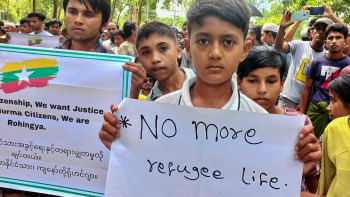
 For all latest news, follow The Daily Star's Google News channel.
For all latest news, follow The Daily Star's Google News channel. 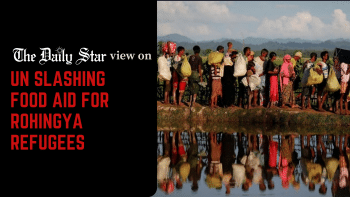
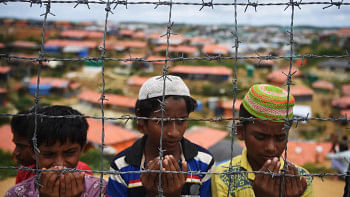


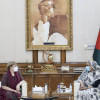


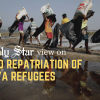



Comments